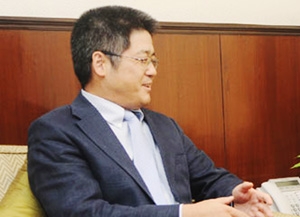New Delhi, Dec 13: India and China today supported the idea of a trilateral dialogue involving them and the US to deal with major global challenges and ensure better mutual ties.
"I agree with the proposal to launch a trilateral talk between China, the US and India. I think it is a good idea. China is open to any dialogue if it produces peace and development. I think it is a very positive idea," Chinese Ambassador Le Yucheng said.
He was replying to a question at an interactive session at the conference on "Shaping the 21st Century: India, the US and China" organised by Bengaluru-based media group Deccan Herald.
Minister of State for External Affairs V K Singh also supported the idea, saying such a proposal will enhance cooperation between the three countries which have strong ties bilaterally with each other.
The idea for such a dialogue was mooted by former Union Minister Jairam Ramesh while addressing the conference.
Editor of Deccan Herald K N Tilak Kumar said the world today was witnessing a tectonic change with the phenomenal rise of China and the continued prominence of the US.
"Both countries are important to India and each one of the three have high stakes in economic ties with the other two," Kumar said, adding the kind of three-way relationship between them will be important not only to each of them but to the whole world.
The combined contribution of India, US and China to the global GDP is between 40 and 45 per cent and their population is estimated at 40 per cent of the world.
Singh and Le also agreed that the boundary question should be resolved mutually and peace and tranquility at the border should be maintained.
Listing the commonalities and shared interests, Singh said if "you have a trilateral dialogue, I think it will only further the type of interests (we are) seeking."
In his address, the Chinese ambassador said he was "very optimistic" about the "future" between India and China and underlined the need for ensuring peace on the border before reaching a final solution.
The Chinese envoy also talked about the trade imbalance with India and said China was opening up its market for Indian companies in many areas to find a solution to the issue.
Replying to a question on South China Sea dispute, he termed it as a complicated issue but asserted that China's sovereignty over the islands in the area was "undisputed".
"It is very complicated (issue). I think if we develop very good relation and cooperation with (concerned countries) we can find a way out. One thing is clear that China's sovereignty over these islands is undisputed," Le said.
In his address, the envoy said though China was "rising" as a major power, it does not seek "hegemony"
"China will remain a benign power and conduct its foreign policy in a constructive way and we will uphold international justice. We will seek cooperative relations with major powers and India. China is not a destroyer and challenger to world order. It is a contributor," he said.
Earlier, Ramesh strongly advocated an institutionalised mechanism for trilateral dialogue among the three powers to deal with issues like climate change, terrorism, energy security and to stop nuclear proliferation.
Ramesh said such a platform was necessary to ensure that differences on various issue do not result in "needless confrontation" and to ensure cohesion on strategic matters.
Identifying climate change as a major issue, he said no global pact to combat global warming was possible without an understanding among the US, China and India as they account for 45-50 per cent of world's green house gas emissions.
Currently, China accounts for about 29 per cent of green house gas emissions while it is 16 per cent by the US and 6 per cent by India. He also welcomed recent announcement by the US and China to take certain actions.
"Environmentally they may not be the most desirable or optimal actions. But these are politically and economically the most realistic action. I think the onus will be on India now to do something meaningful and substantial," he said.
Ramesh said combating terrorism and stopping nuclear proliferation were the other key issues the three countries should work together.
He said as three nuclear powers with substantial arsenals of "strategic and tactical" nuclear weapons, it was incumbent on the US, China and India to ensure nuclear non-proliferation and eliminate the threat of nuclear terrorism as well as to end weapons of mass destructions.
He said the three countries should also ensure that all the states are made accountable for actions of non-state actors whom they may be supporting tacitly. "All three countries have tremendous interests in ensuring that the sources of terrorism are eliminated."





Comments
Add new comment